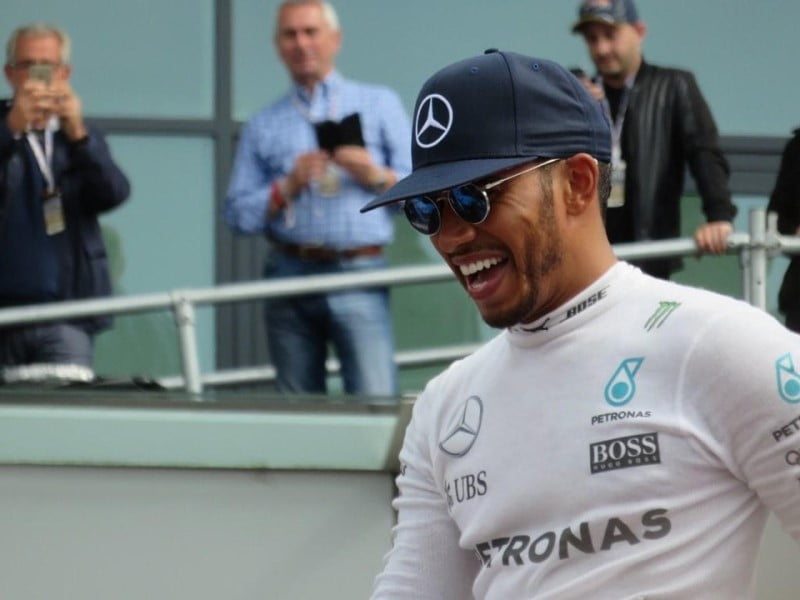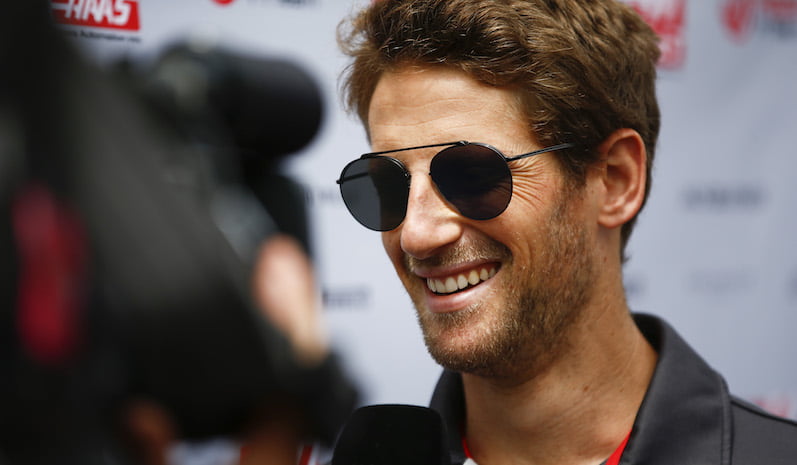When it comes to reading about Lewis Hamilton in the media, it can seem like we are looking at two different personalities. On the one hand, there is Hamilton – the Formula 1 driver and legend. This version of Hamilton is rightly lauded. The coverage focused on his success on the track and his positioning as one of the greatest drivers of all time. There can be criticisms, sure, but they are usually measured and fair. Above all, there is an overarching sense of respect. And why not? We all know what he has achieved.
And then there is Hamilton the man. Or perhaps more aptly, Hamilton the celebrity. This version of Lewis Hamilton is put through the prism of commentary in the UK print media (both tabloid and broadsheet press) and social media, and he ends up getting a slew of negative coverage. Much of it is grossly unfair. And it has led some to wonder, why doesn’t everybody like Lewis Hamilton?
Hamilton 7 F1 Titles: Wolff, Vettel & Allison On His Historic Achievement
Everyone has a right to their opinion, of course. But in the case of Hamilton we can take a more philosophical approach to the matter – can it be seen as a problem of the media itself? Hamilton does not fit the comfortable stereotype of a sports superstar that some writers in the media believe he should. Hamilton’s activism – veganism, climate change, racism – are seen as detrimental, not positives.
Hamilton does not fit the prototype
In a sense, we can accept that some of Hamilton’s statements might rub people up the wrong way. People have a right to, for example, call out perceived hypocrisy when it comes to jet-setting Formula 1 stars and climate change. But we have seen examples of opinion pieces that claim Hamilton’s opinions are hurting F1 itself. The idea that Hamilton is ruining his sport by being “woke” is, of course, nonsense. Nothing he has spoken about has impacted his performances in his sport, nor does it affect any other driver.
Much of it boils down to the fact that some part of the media and, indeed, some fans have an idea of what a sports star should act like. It’s not unique to Hamilton and Formula 1, as we have seen it across many sports. There is an attitude among some that athletes should “know their place” when it comes to politics and activism. Even if some right-wing media outlets didn’t support, for example, Donald Trump’s push back against athletes “taking a knee” to protest racial injustice, they stopped short of advocating the role sports stars should play in activism.
Lewis Hamilton – The Best Showman In Formula 1
For Hamilton, in particular, there is a sense that some writers and fans are stuck in the past, yearning for nostalgia of days that probably didn’t exist in the first place. For them, the person should be confined to the sport alone. They might accept a James Hunt-type playboy figure, but a vegan who wants to have more diversity in Formula 1 seems beyond the pale.
Tabloids criticised for portrayal of black athletes
Is it racism at play? Would the words of Hamilton be treated with more tolerance if they were spoken by, for example, Valtteri Bottas? It’s difficult to say. But we have seen other black sports stars treated with disdain by the media because they don’t fit a blueprint of the media’s ideals. Soccer star Raheem Sterling is one such case. The Manchester City forward was targeted by sections of the tabloid media, and we stress “targeted”. In one particularly egregious case, The Sun posted a picture of Sterling in a story about a former footballer turning to drug dealing. To be clear: Sterling did not have anything to do with the case.
But Formula 1 operates in its own media spheres, and Hamilton is not subjected to the same treatment as Raheem Sterling and other black footballers. Nevertheless, the idea of conformity still permeates much of the coverage of Hamilton – the man. Sport – all sports – is driven by nostalgia, and there is palpable fear from some that change will ‘hurt’ their passion. Because he is calling for some of that change, Lewis Hamilton becomes the focal point of that ire.
If you listen to Hamilton, and not the media portrayal of the man, it’s difficult to argue with his logic. His goal is for more diversity in Formula 1, not to turn everyone in the world vegan. Ask yourself if you can name any more black drivers in Motorsport; not just Formula 1, but across all motorsport disciplines. We know the answer that most of us will give. And until that changes, the media should celebrate Hamilton, not vilify him.
















2 comments On Lewis Hamilton And The Problem With Media Portrayals
Great article..just came across this..
I am new to the world of Formula 1 and am really enjoying it. However, it is, to me, blantently obvious, that the English media, Sky sports, inparticular, have an obvious dislike for Lewis. I don’t understand why, besides the colour of his skin. He has shown nothing but class when I’ve seen him in interviews. When he’s driven well, there isnt coverage like there is, when Max has driven well.
I will continue to follow Lewis, who is a leader, in so many ways.
Thank you.
Many thanks for reading and your comments, Sandra. I absolutely agree that HAM’s a gentleman. I love the way he is able to use his presence and stardom to discuss more social issues. Helmets off to the man! Btw, you’re welcome to tune in and subscribe to our ever-popular podcast – the Inside Line F1 Podcast. 🙂